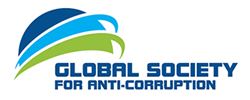Corruption is a malady afflicting not only developing countries, but also the developed world. It is an impediment to sustainable development, depriving the children of today of the resources they will need to survive tomorrow, says the latest report by Transparency International.
Corruption is a malady afflicting not only the developing countries, but also the developed world. It is an impediment to sustainable development, depriving the children of today of the resources they will need to survive tomorrow. This is the upshot of the Corruption Perceptions Index 2002 (CPI) launched Wednesday in Berlin by Peter Eigen, chairman of Transparency International (TI), the global coalition against corruption.
Eigen, who will be attending the World Summit on Sustainable Development, ending on Sep 4, said the Johannesburg conference ”must lead to action.” He added: ”When political leaders sign the Johannesburg Declaration, they must make pledges they can keep, not raise false hopes.” Since corruption is man-made and not God-given, it is for political leaders to clamp down on this evil practice and break the vicious circle of poverty and graft.
Deploying a rather tough language, Eigen said: ”Corrupt political elites in the developing world, working hand-in-hand with greedy business people and unscrupulous investors, are putting private gain before the welfare of citizens and the economic development of their countries.” He added: ”From illegal logging to blood diamonds, we are seeing the plundering of the earth and its people in an unsustainable way.”
The TI chairman accused politicians of ”increasingly paying lip service to the fight against corruption” without however taking necessary steps to curb corruption.
The new index, published by TI, scrutinises 102 countries. Seventy countries – including many of the world’s most poverty-stricken – score less than 5 out of a clean score of 10. According to the index, corruption is perceived to be rampant in Indonesia, Kenya, Angola, Madagascar, Paraguay, Nigeria and Bangladesh, countries with a score of less than 2.
Countries that have secured a score of higher than 9, and evidence very low levels of perceived corruption, are predominantly rich countries, such as Finland, Denmark, New Zealand, Iceland, Singapore and Sweden.
Eigen highlighted some important changes in the corruption perception index.
Last year was marked by setbacks to the credibility of democratic rule. In parts of South America, the graft and misrule of political elites have drained confidence in the democratic structures that emerged after the end of military rule.
Argentina, where corruption is perceived to have soared, joins Panama, Honduras, Guatemala, Nicaragua, Venezuela, Bolivia, Ecuador, Haiti and Paraguay with a score of 3 or less in the TI’s 2002 index.
”While some countries in transition from communism – most notably Slovenia, which has a cleaner score than European Union member countries Italy and Greece – are perceived to be increasingly less corrupt, many countries in the former Soviet Union remain ridden with corruption,” Eigen said.
The recent steps by President Vladimir Putin to introduce tax reforms and new laws to combat money laundering were beginning to dampen corruption in Russia. ”But the CPI 2002 indicates that Russia has a long way to go and remains seriously corrupt, together with Uzbekistan, Georgia, Ukraine, Kazakhstan, Moldova and Azerbaijan, all of which score less than 3 out of 10.”
The CPI – first launched in 1995 – is a poll of polls, reflecting the perceptions of business people and country analysts, both resident and non-resident. This year’s CPI draws on 15 surveys from nine independent institutions. A rolling survey of polls taken between 2000 and 2002, the CPI includes only those countries that feature in at least three surveys.
”It is important to emphasise that the CPI, even with 102 countries, is only a snapshot and covers barely half the more than 200 sovereign nations in the world,” said Eigen. ”There is not sufficient data on other countries, many of which are likely to be very corrupt.”
The CPI 2002 complements TI’s Bribe Payers Index (BPI), which addresses the propensity of companies from top exporting countries to bribe in emerging markets. The BPI 2002, published last May revealed high levels of bribery paid by firms from Russia, China, Taiwan and South Korea. Italy, Hong Kong, Malaysia, Japan, USA and France followed them closely. Many of these countries have signed the Anti-Bribery Convention of the Organisation for Economic Cooperation and Development. The convention bans the bribing of foreign public officials.
CREDITS:
Inter Press Service

